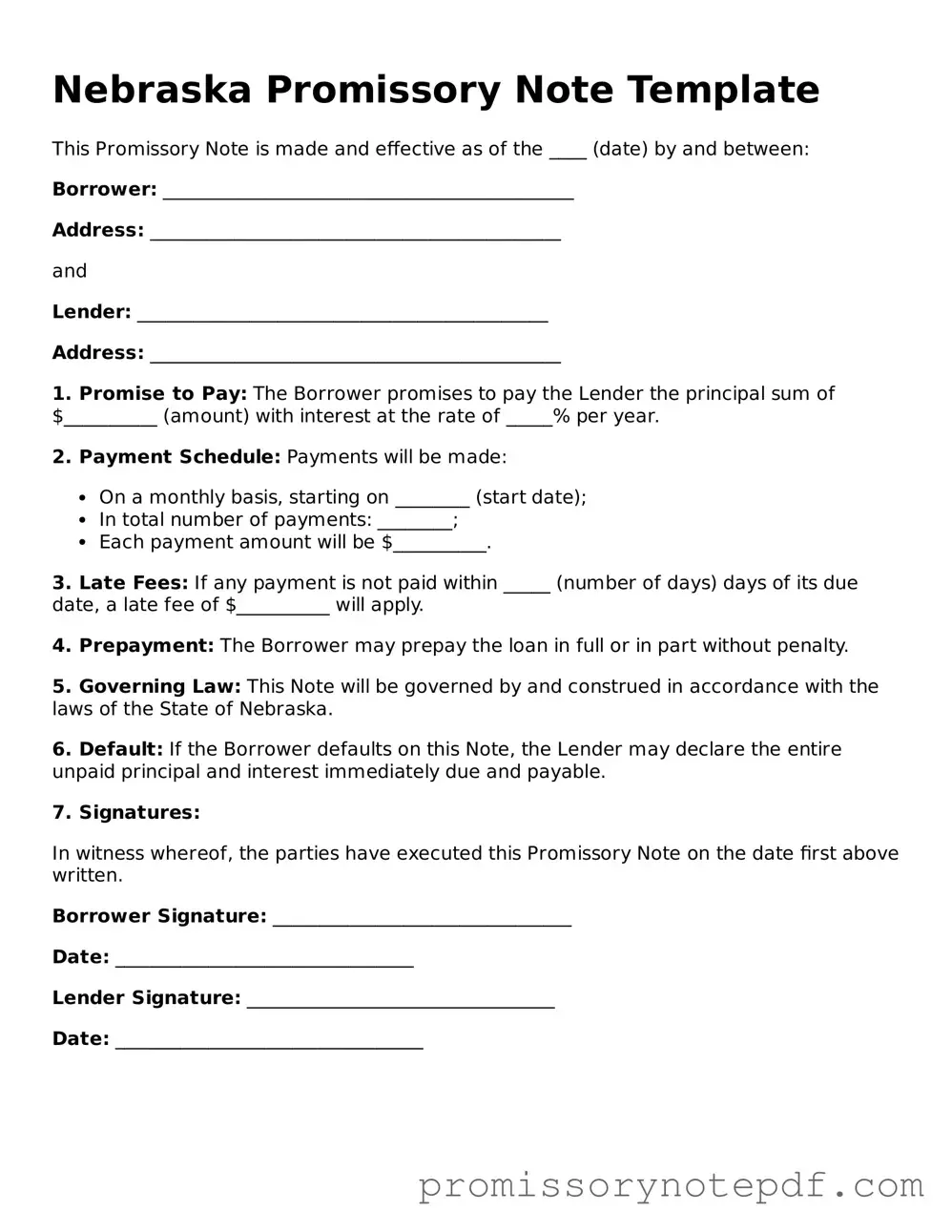The Nebraska Promissory Note form is similar to a Loan Agreement, which outlines the terms of a loan between a borrower and a lender. Both documents specify the amount of money borrowed, the interest rate, and the repayment schedule. However, a Loan Agreement often includes additional details, such as collateral requirements and the responsibilities of both parties, making it a more comprehensive document than a simple promissory note.
Another document that shares similarities with the Nebraska Promissory Note is the Mortgage Agreement. This agreement secures a loan with real property as collateral. Like a promissory note, it details the amount borrowed and the repayment terms. However, the Mortgage Agreement also includes provisions for foreclosure in case of default, thus providing additional protection for the lender.
A Credit Agreement is also akin to the Nebraska Promissory Note. This document governs the terms under which a borrower can access credit from a lender. Similar to a promissory note, it outlines the loan amount and repayment terms, but it may also include conditions for future borrowing and the overall credit limit, making it a broader financial arrangement.
The Installment Agreement closely resembles a promissory note as well. It lays out a payment plan for a borrower to repay a loan over time. Both documents specify the total amount owed and the schedule for repayment. However, an Installment Agreement may also detail the consequences of missed payments, providing more structure for the repayment process.
A Secured Promissory Note is another document that shares characteristics with the Nebraska Promissory Note. This type of note is backed by collateral, similar to a Mortgage Agreement. While both documents outline the terms of the loan, a Secured Promissory Note provides additional security for the lender by specifying the collateral that can be claimed in the event of default.
The Business Loan Agreement is yet another document that mirrors the Nebraska Promissory Note. This agreement is specifically tailored for business loans, detailing the loan amount, interest rate, and repayment terms. While both documents serve the same fundamental purpose, a Business Loan Agreement may include clauses regarding the use of funds and the financial health of the borrowing business, which are not typically present in a standard promissory note.
Lastly, a Personal Loan Agreement shares similarities with the Nebraska Promissory Note. This document outlines the terms of a loan made between individuals, often friends or family members. Like a promissory note, it specifies the amount borrowed and repayment terms. However, a Personal Loan Agreement may include additional personal considerations, such as the relationship between the parties and any informal agreements made outside of the document.
